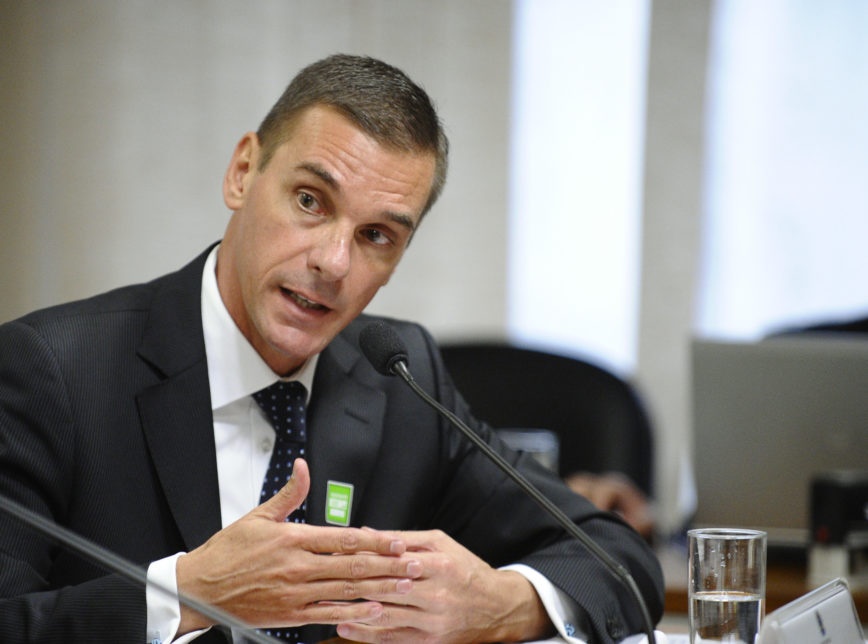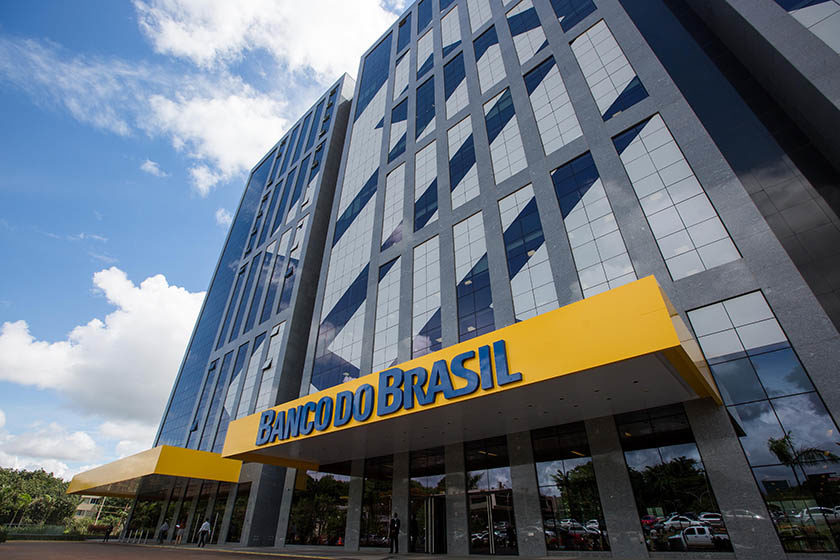RIO DE JANEIRO, BRAZIL – Three weeks after Rubem Novaes’ sudden departure (returning to the private sector) from the presidency of Banco do Brasil (BB), the state-owned financial institution officially named André Guilherme Brandão as its new CEO. His name had been known for some two weeks and his appointment was regarded as a victory for the “pragmatic” government wing because of his profile, which is considered technical rather than political.
Novaes resigned in the midst of wear and tear and also due to pressure during his time running the bank. Despite being endorsed by Economy Minister Guedes, the executive was also linked to “guru” Olavo de Carvalho, who has been causing controversy and disrupting the government’s agenda in Congress. Furthermore, BB’s performance in the credit area was also considered unsatisfactory; as a result, on July 24th, Novaes announced his retirement.
André Brandão came from HSBC, where he has been working since 2003; the new CEO was the institution’s global head for the Americas. Since selling its retail banking operations to Bradesco in 2016, HSBC operates in Brazil only as an investment bank. Before joining HSBC, he spent over ten years at Citibank, another institution that recently left the retail segment in Brazil, selling it to Itaú Unibanco.

It should be noted that in 2015, the executive testified at a Parliamentary Commission of Inquiry (CPI) investigating alleged crimes of foreign exchange evasion of Brazilians who had accounts at the bank’s Geneva branch in Switzerland. At the time, he denied that the Brazilian institution had access to data from account holders abroad.
At HSBC, Brandão was facing a trend towards the downsizing of executive positions. According to a Reuters report published in April, he would remain in the position of manager for the Americas until the end of the year, when “new announcements would be made”. Other bank regional directors have been dismissed since the start of 2020.
The challenges faced by the new CEO
Even before his name was made official as the new president of Banco do Brasil, the news of his appointment had a great impact on the market earlier this month, with analysts covering the bank’s actions emphasizing the “old challenges” that the new CEO will have to face, such as increased competition, innovation, and regulation in the sector, but welcoming the new name.
Itaú BBA pointed out that Brandão’s move to head BB was positive, stressing that he has experience in the wholesale area. Currently, the executive is HSBC’s head of global markets in the Americas.
As the bank’s analysts highlight i) the decision is technical, not the result of any political intervention; and ii) the new CEO’s profile and experience can help BB to overcome its challenges.
“In our view, Brandão can help to: i) accelerate sales of the bank’s non-essential assets; ii) strengthen the bank’s transformation, given his recent experience with HSBC; and iii) bring good ESG [environmental, social and governance] practices, given that Brandão headed the HSBC Climate Business Council,” notes BBA.
In their opinion, Brandão should seek a positive agenda through the reduction of non-essential assets, emphasizing the potential for selling stakes in the BV (a 50 percent joint venture with the Ermírio de Moraes family), BB Americas, Banco Patagonia (in Argentina) and Cateno (owned by the BB and Cielo).

“It would also be possible to find a solution for Cielo,” they assess; speculation on the sale of the BB’s stake in the payment terminal company is not new. The topic was even discussed at Novaes’ last teleconference of results as president of the BB on August 6th.
“In addition to redirecting the BB to its core business, Brandão will likely seek an efficiency agenda, aligning the state-owned bank with its peers: Bradesco, for instance, has just announced its targets for reducing nominal costs in 2020 and 2021. We emphasize that these cost-cutting efforts will be critical to sustain the BB’s profitability as well, given the challenges that the banking sector is currently facing,” they assess.
BBA also point out that, as Novaes said, the bank needs a reform to face the growing challenges in the banking sector. These are: i) intensifying competition from fintechs and players from other sectors, such as retailers; ii) the need to constantly improve the quality of products and services offered, mainly through innovation and partnerships; and iii) the regulatory pressure to open up the banking system, which fosters the emergence of new service providers.
“Banco do Brasil has competitive advantages stemming from its historical exposure to the agribusiness sector and its relatively rigid client base of civil servants. The BB needs to ensure an environment favorable to efficiency and transformation in order to avoid losing these advantages – and consequently value – over time. In our opinion, Brandão’s leadership and strong people skills can help the bank meet these future challenges,” said the analysts, who have issued outperform (“above-market” performance) recommendations for the BBAS3’s assets.
Bradesco BBI also highlights that, as a market professional, André Brandão’s name is well regarded, mitigating concerns about potential political interference in Banco do Brasil. “We note that his background at the wholesale bank should provide support for those who expect the bank to become involved in certain asset sales,” they assess.
However, they ponder: “any change in management takes time and it should be no different in this case,” they say, noting that they expect some adjustments to be implemented in the next three to six months. “Meanwhile, the sector should continue to experience significant developments, such as discussions on instant payments, open banks, and tax reform,” they add.
Among the points to be monitored, XP Investments also points out that, as a treasury/wholesale executive, Brandão has limited experience in retail, the understanding of which is critical to the future of Banco do Brasil. Moreover, he apparently has little association with technology/fintech operations, the greater aggressiveness of which may become an obstacle for existing banks in the long term. Finally, he has never managed this many people, as he has worked in specific positions within foreign banks with fewer employees, against Banco do Brasil’s nearly 100,000 employees.
On the other hand, his vast experience in the financial market, no apparent positions or political ties, indications that he does not seem to be a person who easily gives in to pressure, and holds a high ethical level (important considerations for someone who will take over the largest government-controlled bank), are all positive factors, according to Marcel Campos, an analyst at XP. Moreover, he has a market profile, which can optimize cost cutting and use external force and his experience in investment banks can add to the bank’s wholesale.
As a result, Brandão’s name was very well accepted by the market – however, investors are still attentive to the great challenges that the new executive will have to face.
Source: InfoMoney

